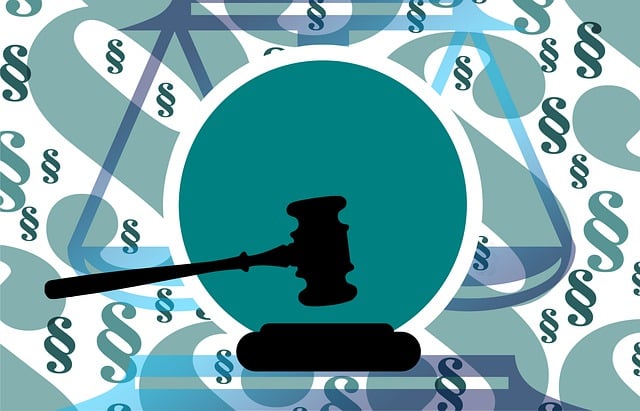In today's digital age, sophisticated fraudulent financial practices pose significant threats, leading to substantial losses, emotional trauma, and reputational damage. Legal battles against these crimes demand innovative Criminal Trial Jury Selection Strategies from skilled attorneys. The process involves rigorous examination of potential jurors' backgrounds and biases related to finance and law to ensure impartiality and understanding of complex financial concepts. Effective strategies are crucial for achieving favorable outcomes in white-collar crime cases, emphasizing justice and deterrence through meticulous investigation, evidence gathering, expert witness testimony, and thorough preparation during Criminal Trial Jury Selection.
Fraudulent financial practices pose a significant threat to individuals, businesses, and economies worldwide. This article delves into the intricate world of financial fraud, exploring common schemes plaguing modern finance. From sophisticated investment scams to accounting manipulation, we uncover their far-reaching impacts on victims and markets alike. Furthermore, it examines the critical role of jury selection in criminal trials for financial fraud, ensuring fair judgments. Finally, it presents effective strategies for prosecuting these cases, emphasizing the importance of robust legal approaches in combating fraudulent activities. Understanding these aspects is key to strengthening financial integrity through Criminal Trial Jury Selection Strategies.
- Understanding Fraudulent Financial Practices: Common Schemes and Their Impact
- The Role of Jury Selection in Criminal Trials for Financial Fraud
- Effective Strategies for Prosecuting Financial Fraud Cases
Understanding Fraudulent Financial Practices: Common Schemes and Their Impact

Understanding Fraudulent Financial Practices: Common Schemes and Their Impact
Fraudulent financial practices are a growing concern in today’s digital era, posing significant challenges for both individuals and institutions. These schemes, often orchestrated by sophisticated white-collar criminals, can have devastating effects on victims, destabilizing their financial stability and eroding trust in the market. Common fraudulent practices include embezzlement, accounting fraud, and investment scams, each with its own intricate strategies to dupe unsuspecting individuals or organizations. For instance, a recent trend involves complex schemes that leverage technology for money laundering and tax evasion, highlighting the evolving nature of these crimes.
The impact of such fraudulent activities is far-reaching. Victims may face not only financial loss but also severe emotional distress and reputational damage. Moreover, these practices can undermine economic growth by distorting market signals and discouraging investment. When brought to trial, criminal cases involving fraudulent financial practices demand meticulous planning and robust defense strategies. Skilled attorneys specializing in white-collar defense employ innovative Jury Selection Strategies to ensure a fair trial and, aiming for winning challenging defense verdicts, focus on avoiding indictment through thorough fact-finding and legal loopholes.
The Role of Jury Selection in Criminal Trials for Financial Fraud

In criminal trials involving financial fraud, jury selection plays a pivotal role in shaping the outcome. The process, often referred to as voir dire, is a strategic art where both the prosecution and defense attorneys meticulously evaluate potential jurors. This step is crucial for building a robust defense, especially in white-collar crime cases, where the line between guilt and innocence can be subtle. By employing effective jury selection strategies, legal teams aim to achieve extraordinary results, ensuring a fair trial and, in some instances, even securing a complete dismissal of all charges.
During this phase, attorneys delve into the jurors’ backgrounds, experiences, and biases related to finance, law, or past similar cases. This allows them to identify individuals who can remain impartial and grasp complex financial concepts. The goal is to find jurors who will critically analyze evidence, understand the nuances of fraud, and make informed decisions based on the presented facts, rather than personal bias or preconceived notions. This strategic approach to jury selection is vital, as it contributes significantly to a just and effective criminal trial.
Effective Strategies for Prosecuting Financial Fraud Cases

In prosecuting financial fraud cases, a robust strategy is essential to ensure justice and deter future offenses. The initial phase involves meticulous investigation and gathering of evidence, which may include complex financial records and digital forensics. Prosecutors must employ innovative techniques to unravel sophisticated schemes, such as money laundering and embezzlement. One effective approach is to utilize expert witnesses who can interpret intricate financial data, helping the jury understand the scope and impact of the fraud.
During Criminal Trial Jury Selection, strategies should focus on identifying impartial jurors with an understanding of economic concepts. This step is crucial in securing a fair trial as it ensures that the jury can comprehend the nuances of white-collar and economic crimes. An unprecedented track record of successful prosecutions demonstrates the effectiveness of these strategies, as seen in many high-profile cases where winning challenging defense verdicts has been achieved through diligent preparation and a deep understanding of financial fraud dynamics.
Fraudulent financial practices pose significant challenges to society, undermining trust and stability. Understanding common schemes, their impact, and leveraging effective strategies for prosecution are crucial steps in combating this issue. While jury selection plays a vital role in criminal trials, ensuring fair and informed decision-making, the ultimate goal lies in strengthening legal frameworks and public awareness to deter such activities. By combining robust prosecution techniques with transparent practices, we can navigate these complex cases, deliver justice, and protect individuals and institutions from financial fraud.






